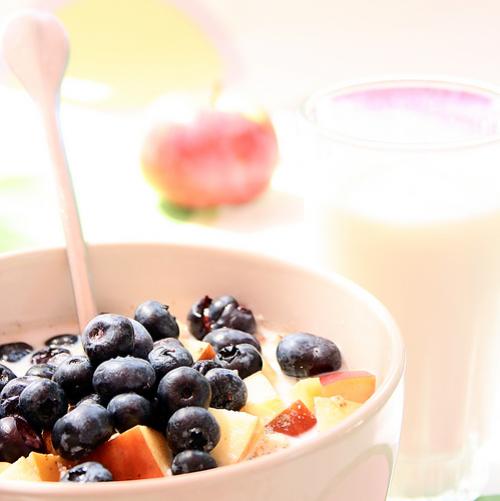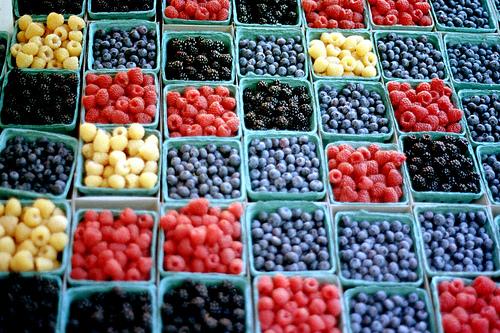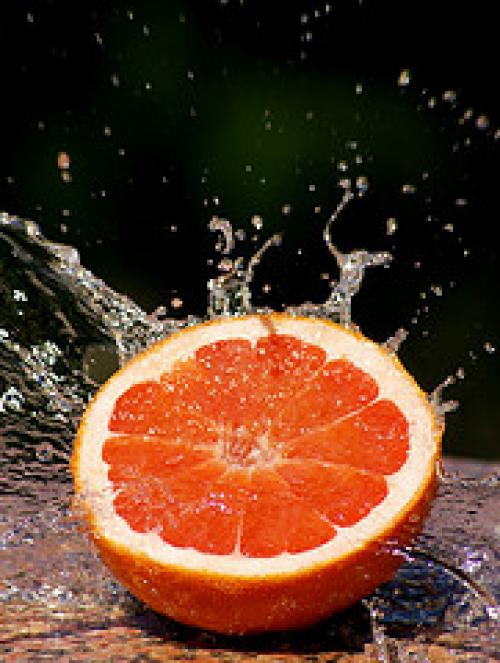20 Ways to Get More Energy

If you’re tired all the time, a change in what you eat (diet) or what you do all day (activity pattern) may be all you need to turn things around 180°.
You won’t be able to do everything on this list all the time — you’d tire yourself out trying to get more energy — but do try them all to see which ones work for you and your schedule. Add a few of these tips to your regular routine. Or mix them up to keep things interesting.
1. Change your socks for refreshment.
It’s an amazing trick. Bring a change of socks to work, and change your socks midway through the day (say, after lunch). You’ll be amazed at how much fresher you’ll feel. This trick is especially handy on days with lots of walking — like during a hike or family outing to the amusement park.
2. Rock out loud.
Whether you work alone or in a room with coworkers, a quick one-song rock out loud session is an effective way to beat back exhaustion.
In a cube farm? Get everyone to sing along! The key is to choose a song that everyone can sing along with. (I like Kokomo.) The energy boosting effect comes from bobbing your head and singing out loud. One song, 3 minutes. That’s a quick boost of adrenaline that lasts for a bit. You’ll be singing to yourself the rest of the never ending project delivery night.
3. Get rid of the stuffy nose.
If allergies have your sinuses blocked, you may be feeling more tired and cranky. An over-the-counter allergy medication should clear up your sinuses (and your mind).
4. Work with your body’s clock.
There is a natural ebb and flow of energy throughout the day. We start off sluggish after waking up, even after a solid 8 hours of sleep. Our energy peaks mid-morning, and it’s natural to want a siesta in the afternoon. We get a second spike of energy in the early evening, followed by our lowest energy point just before bedtime. Once you understand this natural rhythm of energy throughout the day, you can work on the important tasks during your peak hours and avoid early afternoon snoozefests (meetings).
5. Have a piece of chocolate.
Not too much, but if you’re going to have some candy, it might as well be chocolate. We get an endorphin buzz from chocolate (not to mention the energy boost from the slight bit of caffeine chocolate contains). Dark chocolate has more caffeine than milk chocolate.

An afternoon snack of yogurt, berries, and nuts will provide the boost of energy to carry you through the day. Photo by lepiaf.geo / Flickr
6. Have an afternoon power snack.
A small healthy snack that is low in sugar and has protein and/or fiber a couple hours after lunch helps you finish off the day strong. Some suggestions:
- mixed nuts
- nonfat yogurt
- apple and peanut butter
- frozen berrie smoothie
- trail mix
- granola bar
7. Hit up the water cooler for inconsequential banter.
A little midday gossip and random banter is a great pick-me-up for your tired mind. It works because it gets your mind on zero-stress thoughts for a while. The mental break for just a few minutes will revitalize you.
8. Eat lots of berries.
Especially berries that are blue, red, or purple. The color comes from anthocyanins, a powerful antioxidant, that boosts energy. Any kind of berry will contain tons.

All types of berries help fight fatigue and are delicious to boot! Photo by Zabowski / Flickr
9. Wear brighter colors.
This trick is related to the mood you project to people, and the reciprocating mood they project towards you. If you wear dark, somber colors, you project a dark, somber attitude, and people will respond to you with a somber attitude. If you wear bright, happy colors, you’ll get that attitude projected towards you, which will boost your own mood and energy levels.
10. Take a power nap.
But do it in your chair. Don’t lie down on the sofa or you won’t get back up. Keep it short: 5-10 minutes max. Any longer and it will have the opposite effect of knocking you out for the rest of the day.
11. Flirt.
It’s fun, it’s harmless (keep it innocent), and it’s effective. Nothing quite gets the heart pumping like a little flirting.

Amore gets the blood flowing. Flirt for more energy. Photo by Kjunstorm / Flickr
12. Aromatherapy with lavender.
Research has shown that the lavender scent increases alertness. Test subjects were given math tests before and after 3 minutes of lavender aromatherapy. The group completed the tests faster and more accurately after aromatherapy.
13. Wake up at the same time everyday.
Including weekends. This sets your body clock. Otherwise, you’ll be wide awake when you should be asleep. Or worse, asleep when you should be awake (dozing off in a meeting is embarrassing). The key is to go to bed at the same time every night. If you need to reset your sleep cycle in one day, stop eating for the 16 hours before the time you want to wake up.
14. Drink lots of water.
Dehydration is a sinister cause of fatigue because it slowly creeps up on you. If you consistently drink less than 8 cups of water a day, you may be sluggish all the time. Get a 32 oz (1 quart, 4 cups) water bottle. Your goal is to polish off 2 of those a day. Try it for a week and see if your general energy level increases.
15. Use caffeine wisely.
Coffee and caffeinated sodas can boost your alertness, but be careful about letting it be a habitual crutch. The temptation to drink more caffeine to get even more energy will be strong. Eventually you’ll be downing 5 double-shot espressos a day just to function. Drink coffee earlier in the day to avoid insomnia, which will make the next day worse.

Use caffeine in moderation. Coffee provides a shot of energy, but can also become a counterproductive dependence. Photo by visualpanic / Flickr
16. Avoid energy drinks.
Energy drinks provide a near-instant hyperactivity boost, but they always result in a crash. Energy drinks are like energy credit cards — you’re spending future energy to get short-term energy. The resulting energy deficit gets worse until you hit energy bankruptcy.
17. Eat low glycemic (low or complex carb) foods.
Trade in good, complex carbohydrates (low glycemic index) for the bad, simple carbs (sugar). Carbohydrates with a high glycemic index means the sugar is more easily digested by your body. That results in a spike in energy followed by a low-sugar crash.
High glycemic index foods to avoid include white bread, potato, and high sugar foods (like sodas). Low glycemic foods (the good carb foods) include fruits and vegetables, grains (eg., whole wheat bread), low-carb foods (eg., meats), and pasta. Check this chart of foods and their glycemic index before your next trip to the grocery store.
18. Eat more soluble fiber.
Soluble fiber is the kind that slows down the rate of absorption of sugars. It evens out your energy levels by preventing a sugar high and crash. (By the way, insoluble fiber is the kind that prevents constipation.) Don’t worry too much about which kind of fiber you’re getting — they’re both good for you. Rotate more high soluble fiber foods like nuts, grains, fruits, plant matter (vegetables), beans, and oats into your diet.

Eat and sniff more citrus fruits for an energy boost. Photo by Steven Fernandez / Flickr
19. Get your Vitamin C.
Get a daily dose of citrus fruits (eg., orange juice in the morning) or a vitamin C tablet. Study after study shows the correlation between citric acid deficiency and chronic fatigue. Vitamin C also helps you absorb more nutrients from food.
20. Sniff some citrus.
In addition to the Vitamin C, citrus scents (like orange, lemon and lime) stimulate alertness. So lather on some of that lemon scented lotion.